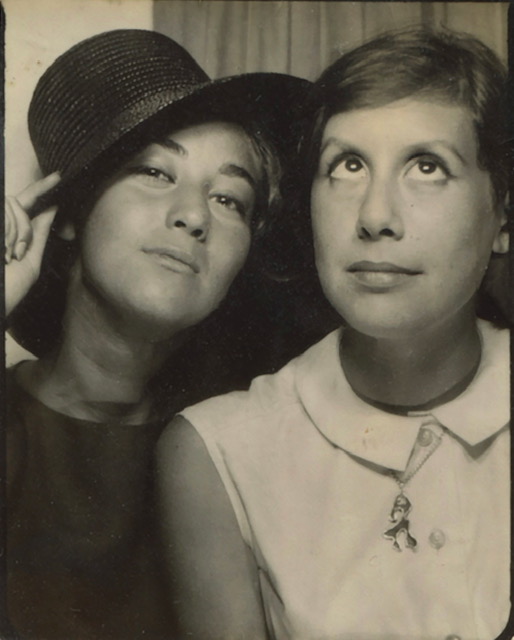In this article, Princeton, NJ, writer Pat Summers takes on ageist language. She suggests that people of all ages learn to use age-neutral words because labels like “senior,” “elderly” and “retiree” can offend—and harm—those who are over 55. Summers’ article appeared in the Princeton Packet on October 14, 2009, and was posted for a time on the SCF website. In case you missed it, we’ve brought it back because so little has changed. The points it makes are still valid. And vital. The article is reprinted with permission from Pat Summers and the Princeton Packet.
For people sensitive to words and the connection of words, beliefs and behaviors, the last linguistic battle was probably against sexism in language—the so-called “generic he,” the misuse of “girl,” the exclusionary words like “chairman” and “statesman,” the rise of “Ms.” as a title.
Now a possibly overdue word war is shaping up, and many of those who fought against sexist language may have reached the right age for this one. It’s ageism in language.
Ageist words? Yes. First, consider the definition of ageism: “ideas, attitudes, beliefs and practices on the part of individuals that are biased against persons or groups based on their age.”
Then consider the prevalence of such words as “senior, “senior citizen,” “elderly,” “retiree” and even “grandmotherly.” From the time you turn 50-something, would you be content to be described by such words?
What’s in a name? If it’s “senior” or “senior citizen,” there could, in fact, be marked resentment.
To those who are 54 or under, “senior citizen” seems like a perfectly neutral term, but to those over 55, it’s offensive.
Because those words and others used to address or describe older people can offend, a savvy little booklet advises using alternative words. Described as a guide for journalism, entertainment and advertising, it’s a 50-page consciousness raiser for people of all ages. Media Takes: On Aging, a joint project of the International Longevity Center-USA and Aging Services of California, crystallizes what those who are sensitive to words may only have wondered about—or smarted at—until now.
It reports that despite today’s heightened sensibilities and belief in diversity, the majority of older persons have experienced ageism. And ageism can hurt. When treated and spoken to as if negative stereotypes and prejudices about aging were actually true, older people can experience diminished self-regard.
According to Media Takes, their functional health can worsen over time as a result of insults and negative images. In contrast, those with positive perceptions of aging live longer. Surprisingly, the booklet is not strident, as might be feared, but highly readable and hard to dispute. Of greatest possible value, it focuses on terminology, listing easily recognized ageist words and phrases as well as others that are more subtly damaging and still in use.
“Senior,” to one journalist, “conjures up dentures and discounts, decline and dysfunction.” While those 54 and under consider “senior citizen” to be neutral, those over 55 regard it as offensive. (Similar reactions surfaced to the words “elderly” and “retiree”—those under 55 found them acceptable; those 55 or more did not.)
A recommended alternative for individuals over 50 is “older adult”—after all, the booklet advises, “we don’t refer to people under age 50 as ‘junior citizens.’” The glossary indicates that “older (people, adults, individuals, Americans and so on)” was seen by nearly 100 age-beat journalists as the top-choice term—the more neutral and flexible, general descriptor for people in later life.
How does all this go down with those who aren’t journalists? Three reactions from the Princeton area follow.
Liz Cohen, a social worker, believes, “It’s more about respect than what we may call people,” adding that intent and tone, or delivery, can make a big difference in how any words are received.
Although the words “senior” and “senior citizen” don’t happen to strike her as negative, she’s aware that words like “dear,” “hon’” and “sweetie” in medical settings can create a forced intimacy that may not be comfortable for the person addressed. In her work at Princeton Hospice, she likes to ask people how they’d prefer to be addressed.
We live in a culture where we fear aging and death, Ms. Cohen points out, and she wonders whether a reaction like “don’t call me ‘older’ even if I am” results from the speaker being an ageist or the person being spoken to not wanting to be reminded of the aging process that’s affecting her or him—and everyone else.
Dana Liebmann, director of personal counseling at the Hun School, admits to strong negative feelings toward the phrase “senior citizen.” Her parents—“vibrant, active, older adults, period”—considered it demeaning. They were careful not to pigeonhole others in descriptive ways, she says. “What would have been the purpose of describing someone by age?”
Ms. Liebmann has noticed “a dismissiveness” toward retired people. “If you’re retired, that means you don’t do anything,” she says. “And it also dismisses you in the sense of maybe you haven’t ever done anything.”
No matter how healthy or capable older individuals may be, Ms. Liebmann says, she’s noticed that those in health care facilities often talk more loudly or more slowly to older patients—whose hearing is fine. And they might talk to a younger family member about a parent who is right there. In short, “they reduce older people to their diagnosis.”
I became aware of how often we use the term “senior” when we could simply say “people.”
–Susan W. Hoskins
Agreeing with Media Takes, she says older people’s self-image and behavior can change as a result of ageism toward them. “Part of how we perceive ourselves is through how others see us… If we feel degraded or not noticed or valued, it’s harder to value ourselves, and we might start to say, ‘Well, what good am I?’”
Ms. Liebmann says a neutral or good intent behind something that’s been said isn’t enough to make up for the upset it may cause. “It’s not what you said, or how you may have said it—it’s how it’s perceived.” In counseling students, she advises those who have offended, however accidentally, to rethink how they might have spoken.
Susan W. Hoskins, executive director of the Princeton Senior Resource Center, tells about an ah-ha! moment she had a couple years ago. Indignant about a newspaper story that seemed to portray those his age as not self-sufficient, a man of 70 mentioned it to Ms. Hoskins. Though her own impression of the piece had been neutral, she tried reading it through his eyes—at which point she realized “it was all about language.”
That man became chair of the communications committee, which, with Ms. Hoskins, worked for much of a year to revamp the center’s basic brochure. “I became aware of how often we use the term ‘senior’ when we could simply say ‘people,’” she recalls.
The brochure-revision group purposely “used language that was lively and active, suggesting living life to the fullest, all the way.” It wasn’t just eliminating the potentially negative words (“senior,” “senior citizen,” “elderly”), but consciously using positive, forward-looking terms aimed at people who are engaged, sharing their wisdom and problem-solving skills.
Is language the mirror or the leader? Ms. Hoskins asks, echoing the perennial debate about dictionaries: descriptive or prescriptive?
“With the women’s movement, we felt if we changed the language, the behavior would follow,” she says, and “now we want to use the language to reflect the world as we’d like it to be.”
For now, it seems there’s awareness, if not universal agreement, regarding ageist language. But even that has caused promising changes in the Media Takes: On Aging direction: a while ago, the name of PSRC’s newsletter went from Senior Scene to Mature Princeton.
Possibly overreaching but at least in the right direction, Portland, Oregon’s public transportation system offers discount rates not to “senior citizens” but to “honored citizens.”
Freelance writer Pat Summers has written for the Philadelphia Inquirer, the Atlantic City Press, New Jersey Monthly, and a number of other publications. She has taught journalism, literature and communications at college and secondary-school levels. Pat, who lives in New Jersey with her husband and two rescue cats, writes frequently about pets. She also blogs for the Animal Protection League of New Jersey and volunteers at an animal shelter.



